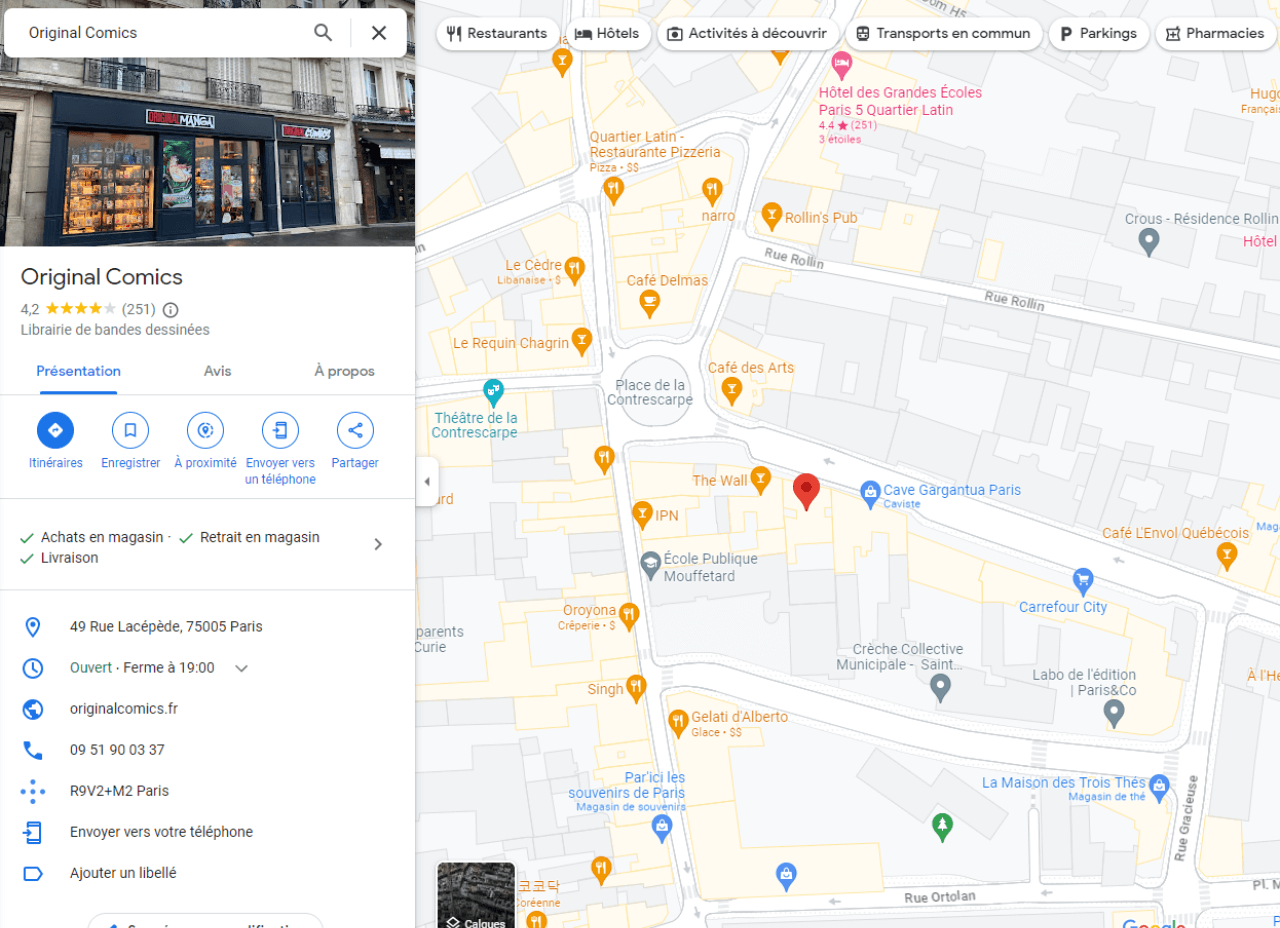As soon as they create their store and their brand, many e-tailers seek to reach their entire national market, sometimes even directly internationally.
While this may make sense in certain specific cases, it’s not necessarily wise for the vast majority of e-commerce stores.
In fact, it’s better not to skip any steps and start building a solid reputation locally, by acquiring a loyal customer base (and the customer reviews that go with it) before eventually seeking to expand the circle of influence of your fledgling brand.
So let’s take a look at how you can use local SEO to boost your online visibility. 
The advantages of promoting local SEO for your e-commerce store
Good local SEO is particularly useful for retailers with a bricks-and-mortar business, but it can also be highly relevant for developing a brand via e-commerce, for a number of reasons.
Creating a solid foundation for your brand’s e-reputation
Whatever the thing or project you’re trying to develop, it makes sense to start small and grow as you go along.
So why would you want to do otherwise when developing your brand online?
Especially since the highly competitive nature of online commerce can make it impossible for a young brand to gain any visibility at all on the national or international market.
Prioritizing your local SEO by adapting it to a specific location will first make you visible to buyers in your geographical area, who will be more reassured and interested in a seller who operates in their immediate vicinity and not on another continent (which creates a more real link).
This proximity will create an initial base of satisfied, repeat customers, as well as a local reputation.
Benefit from less competition and more qualified traffic
In SEO, not all keywords are equal, far from it.
Some words are extremely competitive, and are monopolized by groups with considerable financial and technical resources.
So, favoring the use of “local” keywords can enable you to take advantage of less competition, while remaining relevant in terms of your offers and audience.
For example, the keyword “bricolage” will be extremely competitive, with thousands of websites and product pages seeking to appear through this query, but the long-tail keyword “bricolage à Marseille” will be much less so, and will limit its distribution to websites located in, or directly related to, this geographical area (without necessarily having to own a physical store there).
Adopting this kind of SEO strategy can help your brand or business get off to a better start and be listed more effectively when it’s still unknown on the web.
What’s more, searches for local long-tail keywords (more than 2 consecutive words) are often more specific, and therefore lead to more qualified traffic!
How to adopt a “local” SEO strategy?
The aim of the above recommendations is to build a solid base of customers, brand awareness and visibility on the Internet.
Now, knowing how to use local SEO to boost your online visibility comes down to understanding and adopting an SEO strategy that can be described as “local”.
The use of special keywords and references

To take the previous example, if you enter the query “DIY store” in Google, the results close to your home will appear first.
By “pre-empting” this automatic localization of results, you increase the chances that your e-commerce store will appear first in the desired geographical area.
When we talk about “local” keywords, we’re of course talking about the names of localities (Marseille, Nantes, London…), regions or specific addresses, but also well-known places (Place de la Concorde, Côte d’Azur, South-West…), local references or even significant images and photos of a particular geographical area (in order to improve local referencing via Google Images).
Adopt a local multi-channel marketing strategy
As with classic SEO, effective local SEO requires a multi-channel marketing strategy.
This involves media such as local press and advertising, local blogs and groups on social networks, as well as the use of a Google My business listing.
This option, very useful for local SEO, allows you to be listed on Google and Google Maps via a direct location.
It includes contact details, images, a summary of your business activity, as well as customer reviews and comments, which are extremely important.
Again, you don’t need to have a physical store to promote your brand locally, even via tools like Google My Business (a simple home address and website/online store will do). 
Local SEO: a profitable strategy for new and established brands alike
Just as it’s important to focus on solid foundations when building a house that lasts, knowing how to use local SEO to boost your visibility is one of the first things you should focus on when developing your brand online.
In addition to providing access to a smaller but more qualified and less competitive market, local SEO helps build a loyal customer base, relevant SEO and long-term credibility.
This controlled growth strategy also offers better brand image management, as well as better optimization of content and offerings through feedback from the first customers, enabling you to launch more effectively into a much more competitive national or international market.
For an existing brand, this particular SEO technique offers the opportunity to further diversify its omnichannel communication strategy.
As an e-commerce and SEO expert for 15 years, I can help you launch and develop your brand and/or online store.
Please don’t hesitate to contact me so that we can discuss your needs together.


